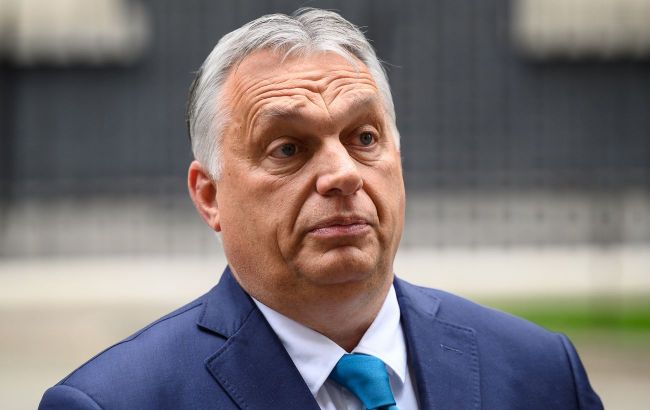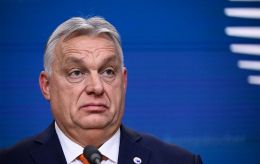EU ready to strip Orban of voting rights over blocking €50 billion for Ukraine - Politico
 Photo: Orban to be stripped of his EU voting rights (Getty Images)
Photo: Orban to be stripped of his EU voting rights (Getty Images)
EU leaders may exclude Hungarian Prime Minister Viktor Orban from the bloc's voting process if he continues to obstruct the allocation of a €50 billion aid package to Ukraine, according to Politico.
As the agency notes, after several years of softening up to Orban, this time European diplomats are signaling that the "nuclear option" - excluding Budapest from the EU voting process - is no longer unthinkable if it jeopardizes the security of Ukraine, an EU candidate country.
Five European officials and diplomats said other countries in the bloc are ready to take steps against Budapest, a historic move for leaders who rely on cohesion and unanimity.
"If Orban really blocks again an agreement [on the budget and the €50 billion for Ukraine] at the February summit, using Article 7 to strip Hungary of its voting rights could become a real option," says one EU diplomat.
EU summit
Next week's vote on aid to Ukraine is important both for Ukraine and for the EU's message to Russian President Vladimir Putin that Ukraine has the unanimous support of its Western allies. In December, Orban blocked an EU attempt to send aid to Ukraine as a sign of support for Putin. Orban said at the time that he was willing to override his veto only if the EU unblocked frozen aid to Hungary for its violation of the rule of law.
European leaders are also eager to demonstrate continued support as Washington struggles to agree on its financial assistance to Kyiv.
The Pentagon has announced that Ukrainian soldiers on the front lines are running out of ammunition without continued U.S. support. And with the potential return of former (and current Republican candidate) U.S. President Donald Trump's pro-Kremlin agenda, there is a sense of urgency among European leaders.
Everyone fed up with Orban
For years, the European Union has tried to hold back Hungary's democratic backslide by denying aid as the country moved away from the bloc's liberal values. Orban, in turn, has used a tactical veto on a wide range of European affairs to get more money in the past years.
“It’s clear that heads of state and government are fed up with Orbán,” says Steven Van Hecke, a European politics professor at KU Leuven. “It’s time for Orbán to realize that the threat of Article 7 now exists.”
However, diplomats said that some Central and Eastern European countries are afraid to invoke Article 7 because they fear they could face similar rule of law scrutiny at home in the future.
Slovak Prime Minister Robert Fico is particularly a wild card, as it remains unclear whether he will ultimately be loyal to Orban or the rest of the bloc.
In December, the Financial Times reported that EU member states were considering stripping Hungary of its voting rights to approve a €50 billion aid package for Ukraine in 2024-2027.


